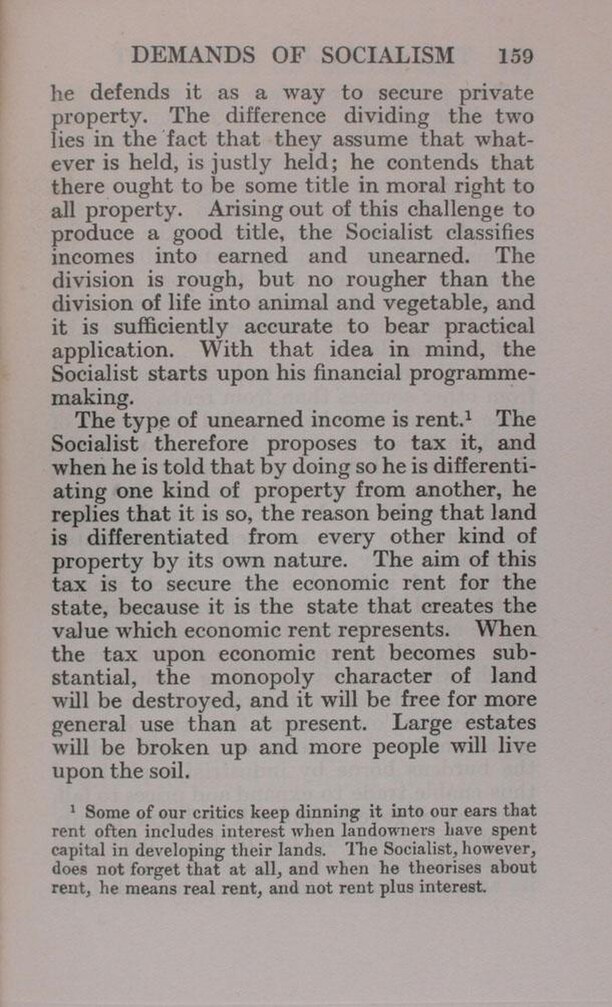he defends it as a way to secure private property. The difference dividing the two lies in the fact that they assume that whatever is held, is justly held; he contends that there ought to be some title in moral right to all property. Arising out of this challenge to produce a good title, the Socialist classifies incomes into earned and unearned. The division is rough, but no rougher than the division of life into animal and vegetable, and it is sufficiently accurate to bear practical application. With that idea in mind, the Socialist starts upon his financial programme-making.
The type of unearned income is rent.[1] The Socialist therefore proposes to tax it, and when he is told that by doing so he is differentiating one kind of property from another, he replies that it is so, the reason being that land is differentiated from every other kind of property by its own nature. The aim of this tax is to secure the economic rent for the state, because it is the state that creates the value which economic rent represents. When the tax upon economic rent becomes substantial, the monopoly character of land will be destroyed, and it will be free for more general use than at present. Large estates will be broken up and more people will live upon the soil.
- ↑ Some of our critics keep dinning it into our ears that rent often includes interest when landowners have spent capital in developing their lands. The Socialist, however, does not forget that at all, and when he theorises about rent, he means real rent, and not rent plus interest.
